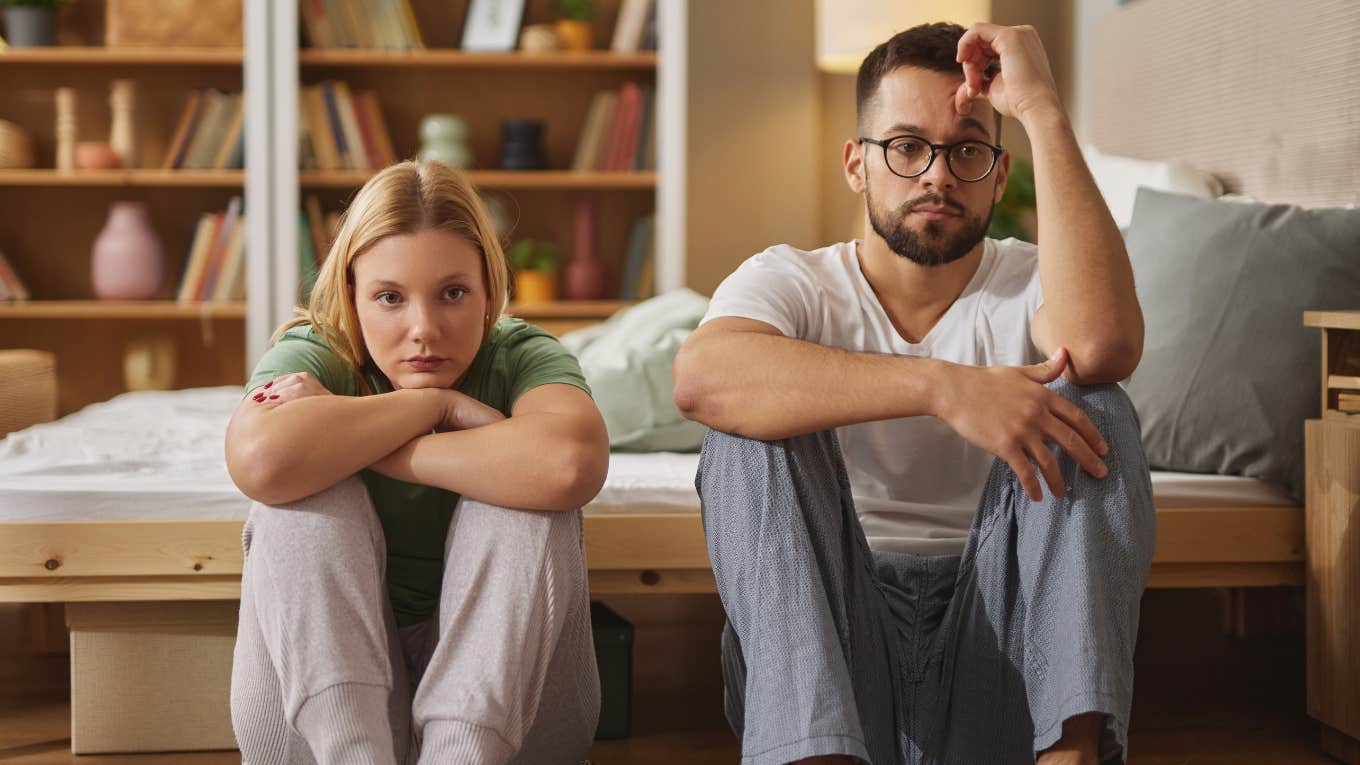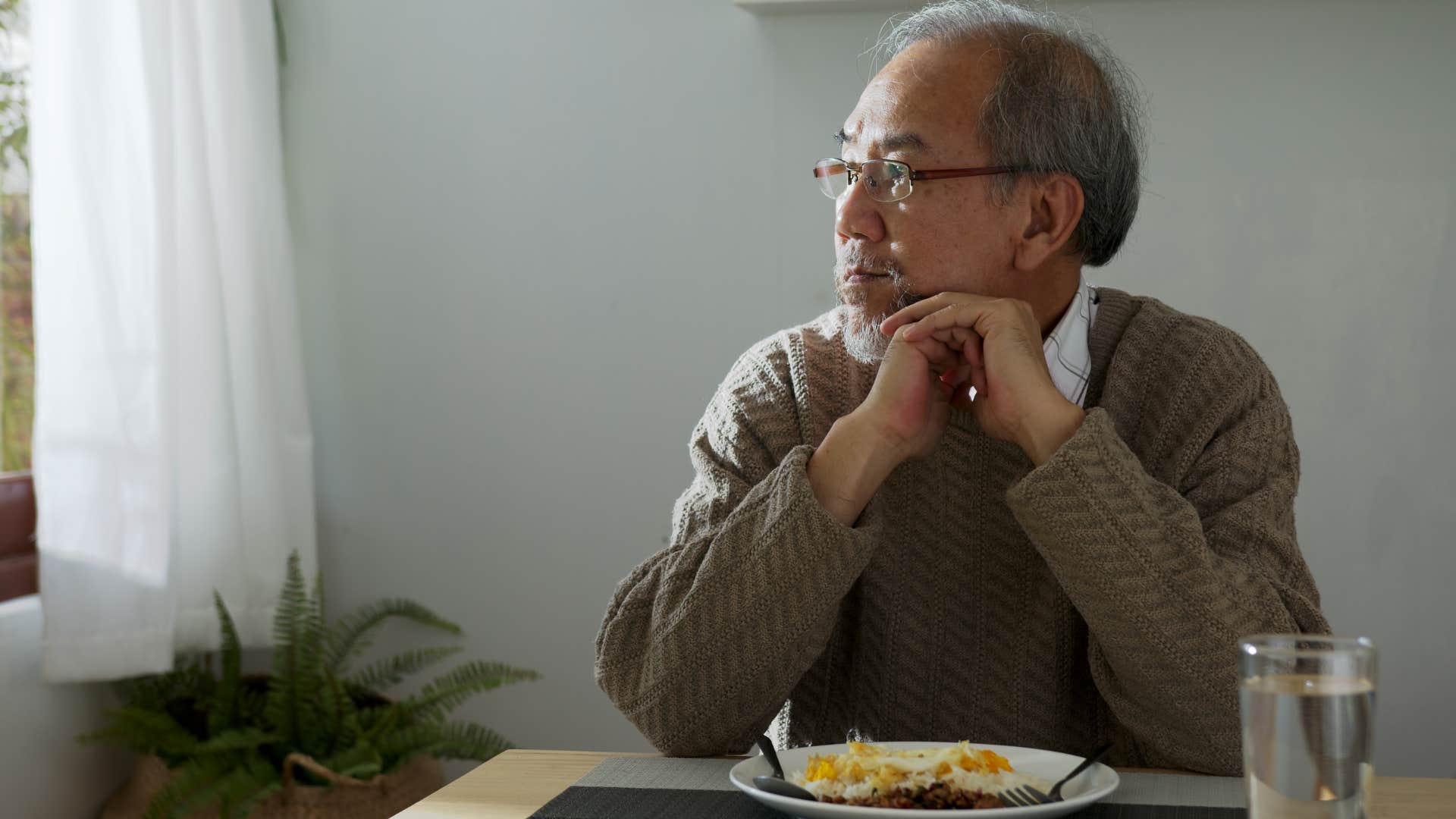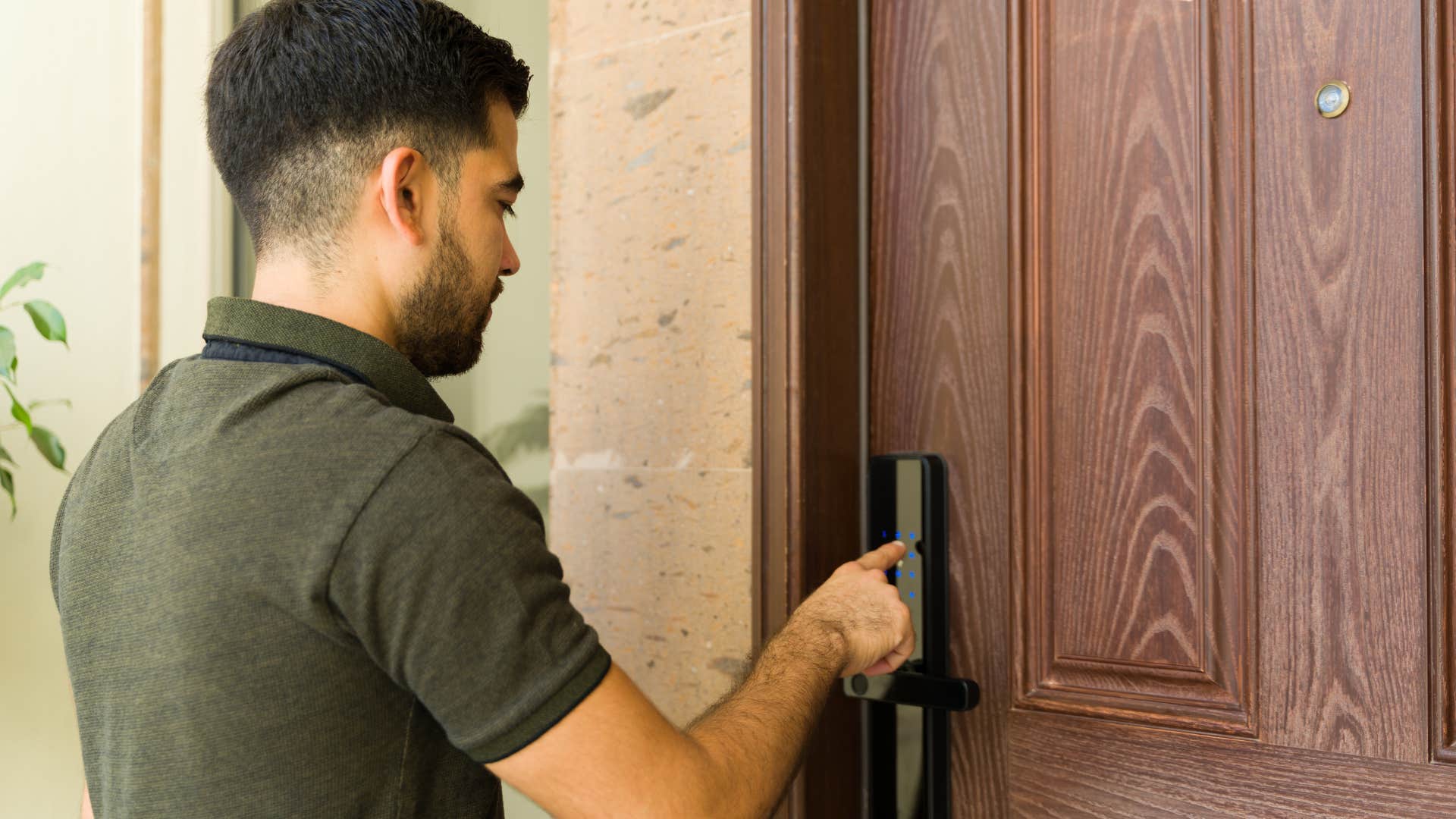11 Things In A Home That Instantly Reveal The Couple Doesn't Actually Like Each Other
These signs are more subtle than you may even realize.
 StockPhotoDirectors | Shutterstock
StockPhotoDirectors | Shutterstock Even though making the decision to move in together, purchasing a shared living space, and decorating a home together are some of the most talked about experiences for couples, the practices that truly matter — like spending quality time together, communicating at home, and being intentional about decor, like a Sofary study suggests — are actually the most influential and important.
However, there still are many things in a home that instantly reveal the couple doesn't actually like each other — from home decor, to lacking intentionality, and clear divisions of time and space. When a couple loves and respects each other, their living space is a reflection of their relationship, but if the opposite is true, it can be just as obvious to guests.
Here are 11 things in a home that instantly reveal the couple doesn't actually like each other
1. Bare walls
 Perfect Wave | Shutterstock
Perfect Wave | Shutterstock
According to a study from the Journal of Personality and Social Psychology, taking photos with a partner can help to boost happiness, bonding, and positive emotions in the moment, but it's the display of these intimate photos and memories at home that truly make the biggest difference.
Helping to serve as a reminder of connection, love, and positivity, hanging photos with your loved ones at home is the perfect place to express gratitude and escape from everyday life. That's exactly why bare walls and home decor clearly missing photos of couples together are some of the things in a home that instantly reveal the couple doesn't actually like each other.
Either they're too busy to put up the photos themselves, too overwhelmed by the thought of mixing their own decor with their partners, or they'd prefer to not be constantly reminded of each other in their shared space with frames.
2. Passive-aggressive notes
 Gunter Nezhoda | Shutterstock
Gunter Nezhoda | Shutterstock
According to licensed social worker Signe Whitson, part of the reason many families and couples rely on passive-aggressiveness to cope with emotional turmoil is because their anger has been demonized.
They struggle to make space for it, express it, and internally deal with it, so instead they use passive-aggressiveness — like notes around the house or closed off body language — to misguidedly seek support or acknowledgement from others.
That's why it's one of the things in a home that instantly reveals the couple doesn't actually like each other. They don't have a fundamental level of safety in their communication patterns, so they feel drawn to misguided coping mechanisms and strategies as a result.
3. Uncomfortable shared spaces
 Srdjan Randjelovic | Shutterstock
Srdjan Randjelovic | Shutterstock
Whether it's a closed off living room or uncomfortable furniture in shared spaces, oftentimes these subtle things are larger things in a home that instantly reveal the couple doesn't actually like each other. If they did, they'd be spending time together in shared spaces, intentionally crafting areas that are comfortable and conducive to support, affection, and communication.
Like a study from BMC Women's Health suggests, long-term couples are less stressed, bored, and unhappy in their relationships when they share strong communication skills — opening up, being honest, and expressing concerns as they arise. While a shared space and comfortable furniture isn't always a part of those communicative habits, they can play a role in making partners feel more secure to practice them.
4. A lack of individuality
 PeopleImages.com - Yuri A | Shutterstock
PeopleImages.com - Yuri A | Shutterstock
Even though a couple's shared space is often a reflection of their relationship and togetherness, alone time, personal identity, and interests still play a role in protecting their well-being and happiness. When couples move in together, they make compromises and meld their tastes, styles, and passions together, so healthy couples likely have a range of things from both partners scattered around their homes.
However, lacking these sentimental pieces, identity-tied objects, and personal artwork in a home can be some of the things that instantly reveal the couple doesn't actually like each other.
Not only is it a sign that they struggle to compromise or make space for personal identity over a shared one, both partners likely struggle with the consequences of not having their most important items around.
5. Different calendars
 fizkes | Shutterstock
fizkes | Shutterstock
According to a 2012 study, sharing calendars with your partner isn't just a perfect vehicle for sharing information and promoting clarity, it can often boost intimacy in a long-term partnership as well. That's why having separate calendars is one of the things in a home that instantly reveals the couple doesn't actually like each other.
Not only are they less open about their plans and crafting the mundanity of their everyday lives alongside each other, they remove a shared feeling of intimacy and togetherness from planning their weeks and days.
6. Separate everything
 Chay_Tee | Shutterstock
Chay_Tee | Shutterstock
While there's certainly evidence to suggest that partners who sleep in separate beds tend to boast a healthier relationship, with less fights, more energy, and a happier mood, having a separation between every aspect of their daily routines and lives can be one of the signs of the opposite.
For example, having separate bathroom tools, groceries, toiletries, and daily items can be some of the things in a home that instantly reveal the couple doesn't actually like each other. In fact, it's often a sign that they're stuck in some kind of "roommate phase" where they're simply co-existing, rather than crafting intimacy and connection together in little mundane moments.
7. An uncomfortable mattress
 Monkey Business Images | Shutterstock
Monkey Business Images | Shutterstock
If a couple is sharing the same bed and sleeping on an uncomfortable mattress, it could be more influential on the well-being and happiness of their relationship than you'd imagine. In fact, according to a survey from The Better Sleep Council, having a comfortable mattress at home is associated with happier, healthier, and more connected couples.
Poor sleep quality and not getting enough rest can sabotage healthy relationships and spark negativity, mistrust, and resentment between partners in a subtle way over time. That's why prioritizing rest and having comfortable furnishings at home that make getting quality sleep possible are so important.
8. Locked doors
 Antoniodiaz | Shutterstock
Antoniodiaz | Shutterstock
Having a level of privacy from the outside world as a couple and even between each other at home is healthy for a relationship, like a study from the Journal of Family Issues suggests. But when privacy is mistaken for mistrust or dishonesty, it can sabotage well-being and intimacy.
That's why locked doors — without obvious reason or for genuine personal privacy — are one of the things in a home that instantly reveal the couple doesn't actually like each other. At the very least, they may not trust one another enough to leave things in rooms that everyone has access to.
9. Unopened gifts
 fizkes | Shutterstock
fizkes | Shutterstock
Giving gifts and offering sentimental items to your partner can be a great way to build trust, boost bonding, and even spark intimacy at home, but when they're left unopened or unused, that can also say a lot about relationship well-being.
That's why they're one of the things in a home that instantly reveal the couple doesn't actually like each other. They don't care enough about gratitude or making the gift-giver feel heard and valued to even open the gift in the first place.
10. Constant silence
 Dikushin Dmitry | Shutterstock
Dikushin Dmitry | Shutterstock
According to a study from Personal Relationships, shared laughter is a strong indicator of relationship wellness — the more laughs a couple shares together, the more likely they are to boast a healthy, happy, and intimate connection.
However, when couples are separated, constantly quiet, and subtly disconnected, they tend to struggle with the kind of honesty, trust, and security that their happier counterparts thrive with. That's why silence is one of the things in a home that instantly reveals the couple doesn't actually like each other.
Of course, quiet alone time while living together is important, as is lazy quality time together, but constant silence can be a sign of couples who'd prefer to do nothing than interact.
11. One person's home decor
 PeopleImages.com - Yuri A | Shutterstock
PeopleImages.com - Yuri A | Shutterstock
When you walk into a couple's shared space and feel like the home decor, artwork, and energy of the home is dominated by one person, that could be one of the signs that they don't actually get along or boast the healthy relationship you thought they did.
Compromise, even when it comes to home decor in a shared space or the vibe of a home, is more important for relationships than people understand, which is why unhappy couples tend to struggle with resolving conflict and communicating openly.
Zayda Slabbekoorn is a staff writer with a bachelor's degree in social relations & policy and gender studies who focuses on psychology, relationships, self-help, and human interest stories.

